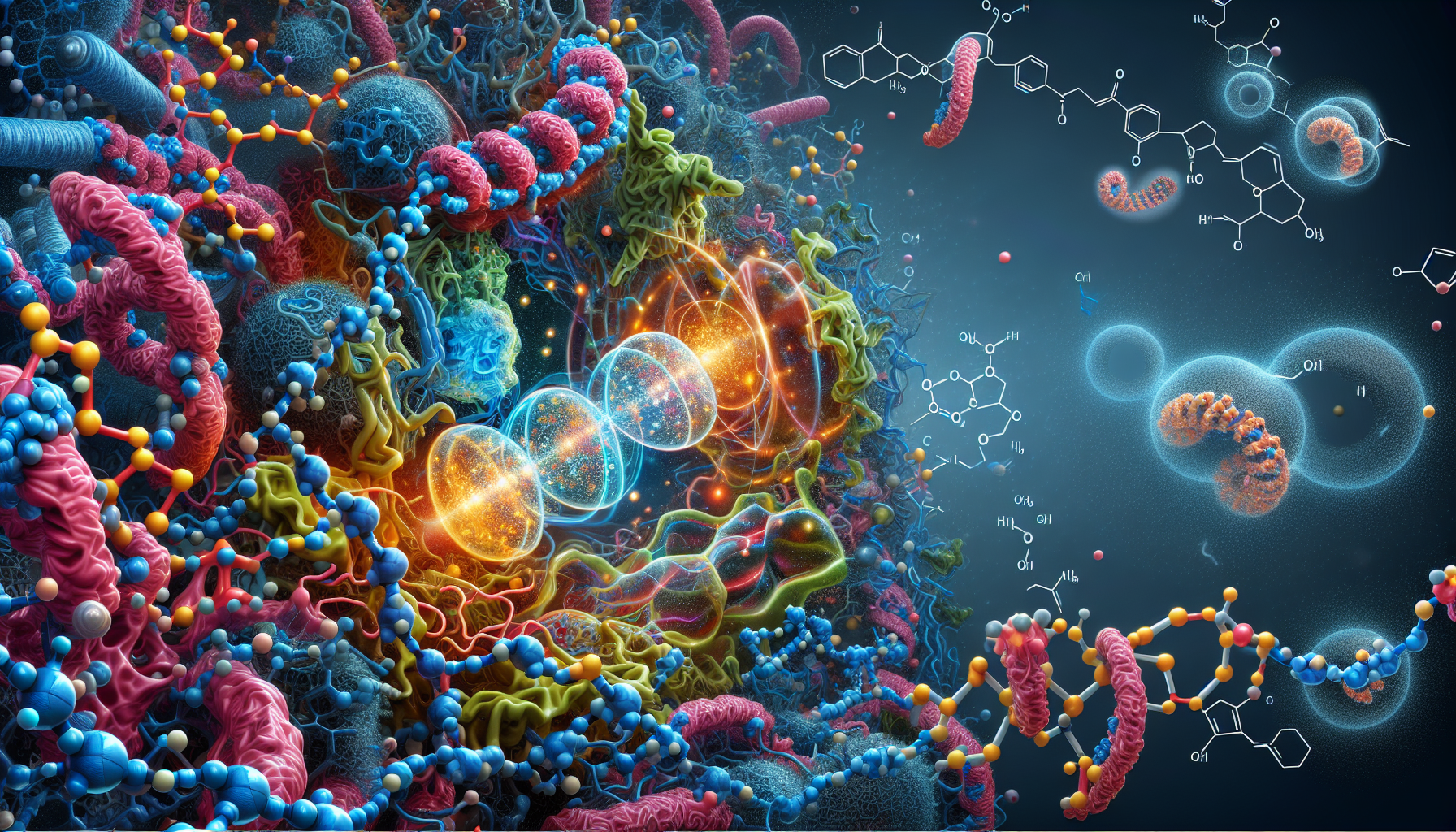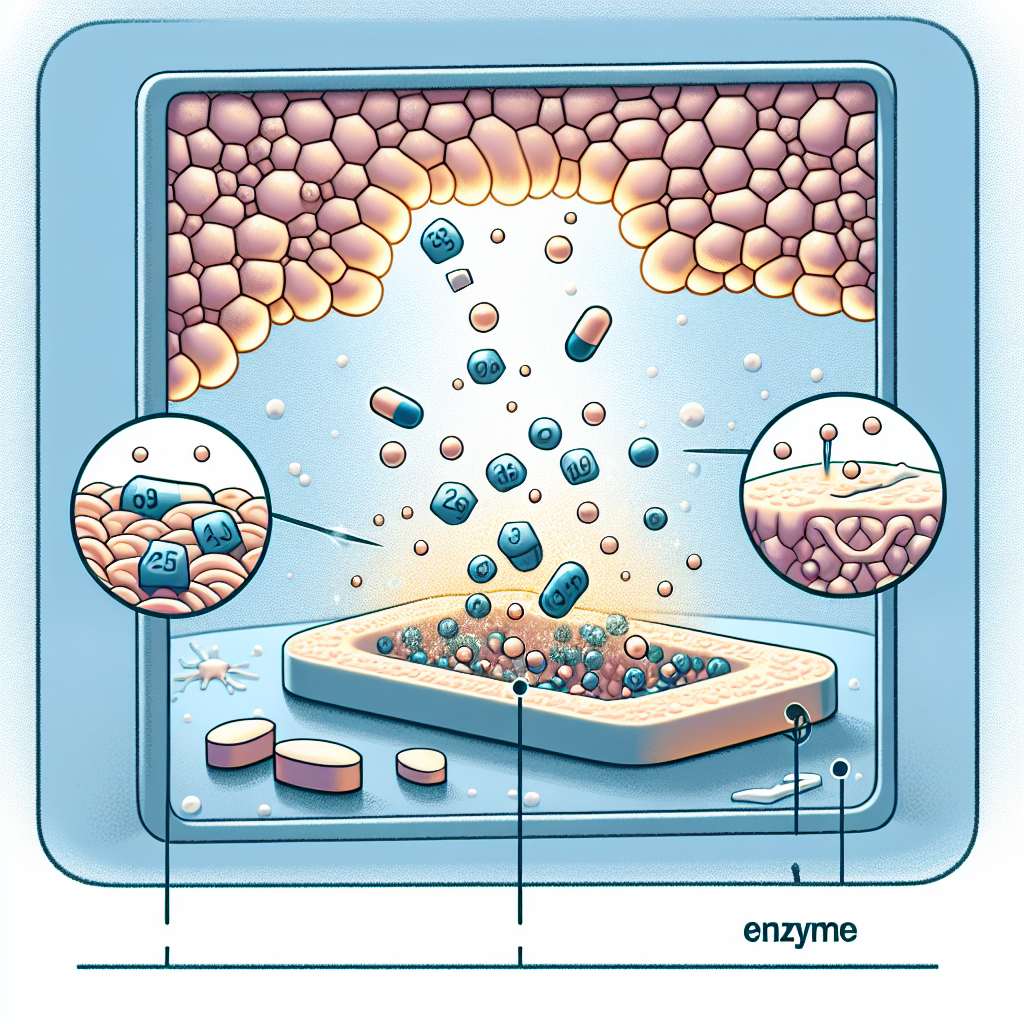Enzymes play a pivotal role in the human body, serving as the catalysts for metabolic processes that are essential for life. These biological molecules accelerate chemical reactions, including those responsible for the metabolism of medications and supplements. Understanding the intricate dance between enzymes and these substances can unlock better health outcomes and inform personalized medical practices.
Understanding Enzyme Function in Metabolism
Metabolism is a term that encompasses all biochemical processes that occur within living organisms to maintain life. At the heart of these processes are enzymes, which are proteins that speed up chemical reactions without being consumed in the process. They are highly specific, meaning that each enzyme only catalyzes a particular reaction or type of reaction.
When it comes to medications and supplements, enzymes are responsible for their metabolism, which includes the processes of absorption, distribution, metabolism, and excretion (ADME). The metabolism of substances typically transforms them from lipid-soluble to water-soluble compounds, facilitating their elimination from the body.
The Impact of Enzymes on Medication Efficacy
The effectiveness of medications heavily relies on enzymes, particularly those in the liver, which play a crucial role in drug metabolism. This process impacts how quickly a medication is metabolized and subsequently, its duration and intensity of action. Genetic variations in enzymes contribute to the vast differences in drug metabolism among individuals, which is a primary consideration in precision medicine and pharmacotherapy.
Cytochrome P450 (CYP) enzymes are a significant family of enzymes involved in drug metabolism. Variations in the genes coding for CYP enzymes can lead to different metabolic rates among individuals, resulting in varied drug responses. Some people might metabolize a drug too quickly, reducing its efficacy, while others might metabolize it too slowly, increasing the risk of side effects.
Enzymes and Supplement Metabolism
Just like medications, dietary supplements undergo metabolic processes that are enzyme-mediated. The bioavailability of nutrients in supplements can be influenced by these enzymes, which can affect the supplement’s effectiveness. For instance, certain enzymes in the digestive system can break down supplement compounds before they are absorbed, which is a crucial aspect of digestive health.
Moreover, the interaction between enzymes and supplements can impact the absorption of other nutrients. For example, enzymes that metabolize proteins are essential for the proper utilization of amino acid supplements, as detailed in discussions on understanding the benefits of amino acid supplements.
Factors Influencing Enzyme Activity
Several factors can affect enzyme activity within the body, thereby influencing the metabolism of medications and supplements. These include:
- Genetic Variations: As mentioned earlier, genetic differences can lead to variations in enzyme activity.
- Age and Health Status: Age-related changes and health conditions can alter enzyme levels and activity.
- Diet and Lifestyle: Certain foods and habits can induce or inhibit enzyme activity. For example, grapefruit juice is known to inhibit CYP enzymes, affecting drug metabolism.
- Environmental Factors: Exposure to pollutants and chemicals can affect enzyme function.
Optimizing Medication and Supplement Use Through Enzyme Understanding
By understanding enzymes and their role in metabolism, healthcare professionals can tailor medication and supplement regimens for individual needs. This approach is part of optimizing chronic disease management, personalizing treatments to improve efficacy and minimize adverse effects (Chronic Disease Management: Optimizing Medication and Supplement Use).
Medication-Supplement Interactions
Enzyme interactions are not limited to the metabolism of individual substances; they can also influence the interaction between medications and supplements. Supplements can induce or inhibit enzymes that metabolize medications, leading to alterations in drug efficacy or safety. A nuanced understanding of these interactions is crucial for comprehensive medication management in mental health, where enzyme activity can significantly influence the therapeutic outcomes.
External Resources for Further Exploration
For those interested in delving deeper into the science of enzymes and their role in drug metabolism, the following resources are invaluable:
- Clinical Pharmacogenetics Implementation Consortium (CPIC) Guidelines provide detailed information on how genetic test results can be used to inform drug therapy decisions based on enzyme genotypes.
- Pharmacogenomics Knowledgebase (PharmGKB) is a comprehensive resource that curates knowledge about the impact of genetic variation on drug response for clinicians and researchers.
- The Human Protein Atlas offers extensive data on the tissue-specific expression of enzymes and other proteins in the human body, contributing to medication metabolism research.
- Drug Interaction Checker Tools allow healthcare professionals and patients to check for potential drug-supplement interactions based on enzyme activity.
Conclusion
Enzymes are the unsung heroes in the domain of medication and supplement metabolism. They not only determine the fate of these substances in the body but also influence the overall therapeutic outcomes. By harnessing knowledge about enzymes, healthcare professionals can enhance the precision of treatments and the safety of medication regimens. The integration of enzyme understanding into patient care will continue to be a cornerstone of personalized medicine, offering a pathway to more effective and safer therapeutic strategies.



